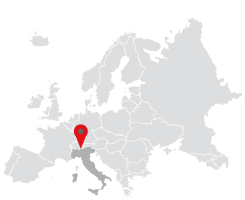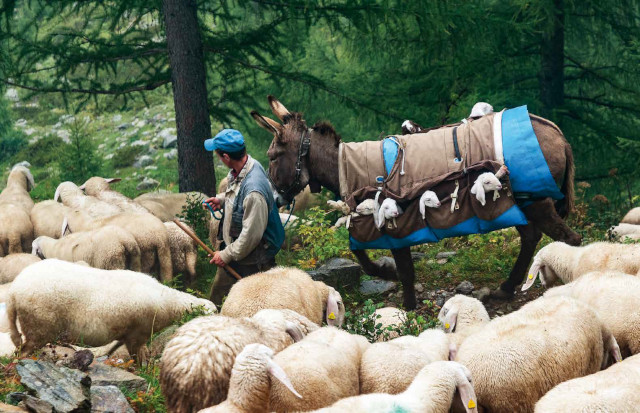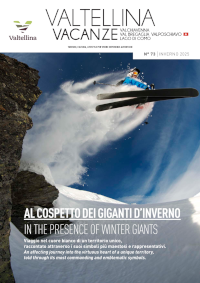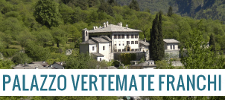Gabriele had always dreamed of being a shepherd. Morethan a line of work, his is a genuine vocation. Not an easy choice, and full of sacrifice. Here’s his story.
Gabriele Arrigoni was born in Bergamo 46 years ago, into a family which had always bred and reared animals. It was perfectly natural therefore that even as a youngster he was to become involved. He first learned his trade with the cows, then over time he found himself rearing sheep. And with the onset of summer he’s responsible for the annual transfer of the entire flock to the upper pastures. A seemingly endless tide, white-crested and numbering 1400-1500 head slowly easing their way from Chiavenna up the Valle Spluga and finally Valle di Lei.
He was a mere 17 when he decided that this, his real passion for rearing animals, was to be his calling, indeed his future. A future requiring dedication. Dawn starts and early to bed. Most of his youth was a solitary one in charge of the many hundreds of his flock. His natural habitat is outdoors, in the mountains at around 2000 metres. An ever-changing sky his canopy, the elements his company, yes, even when ravaged by both wind and cold. For Gabriele there are two defining seasonal unfoldings: the relocation of his animals to the upper mountains – between May and June - and the return towards the Pò valley between September and October. His summer sojourn has remained Valle di Lei for the last 12 years.
Incidentally, anyone can get there on foot via Fraciscio, Angeloga and Lago Nero. “Here I’m at peace with the world” he tells me “the sheep are in good order and have excellent pastures to enjoy”. And his occupation also has a determining function for the Alpine habitat itself. Helping to keep the mountain grasses trimmed and containing the advance of woodland which in the last few decades has seen the marked recovery of an area once abandoned
by man. “It’s an original sort of work” he muses “which affords immense freedom. I don’t have a timetable and exist in the wide open air. It’s a real pity that there are not more people, especially the young, who are prepared to take on this invigorating way of life”. And being a shepherd today is considerably easier with respect to Gabriele’s early years.
Technology and means of communication available even in the upper mountains certainly make it a less solitary existence. But of course even today Gabriele has to protect his flock: from wolves, disease, rivers, snow, sometimes even tourists irritated by pastoral matters and who sadlly don’t always appreciate its importance. Sheep remain vulnerable and the bond with the shepherd will always be vital. The very presence of sheep in the mountains will continue to be both joyous and crucial and those holidaying alongside should genuinely appreciate their solidarity and respect their safekeeping.

























